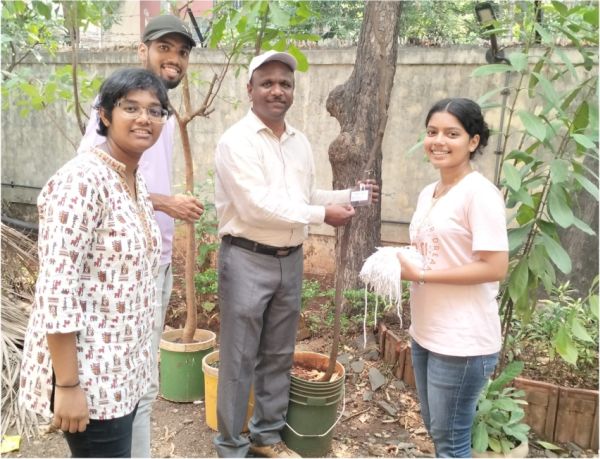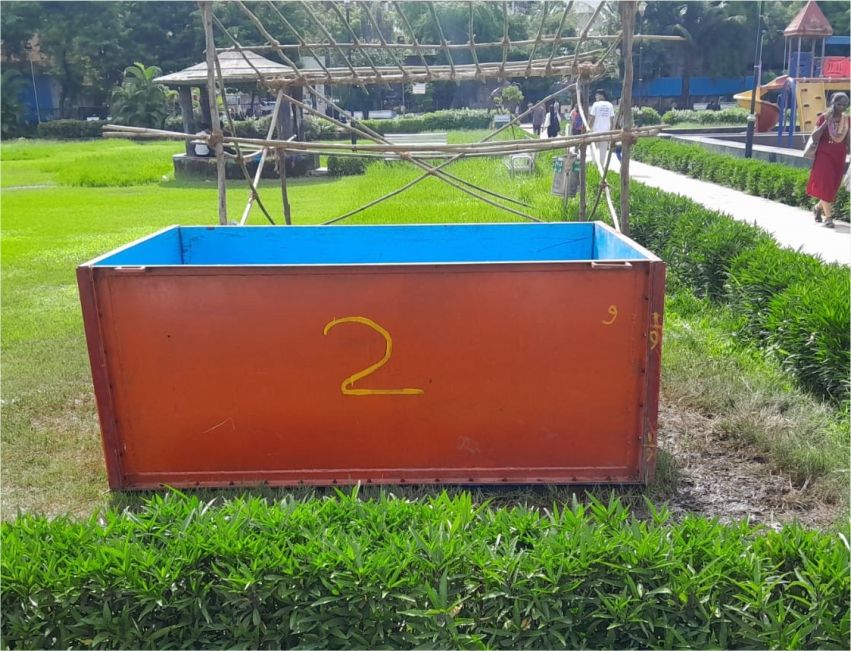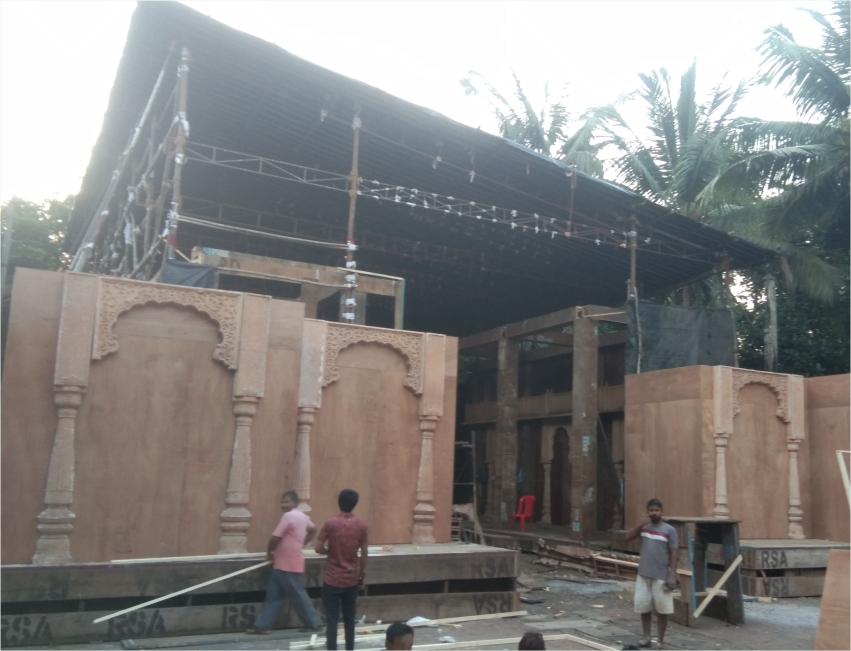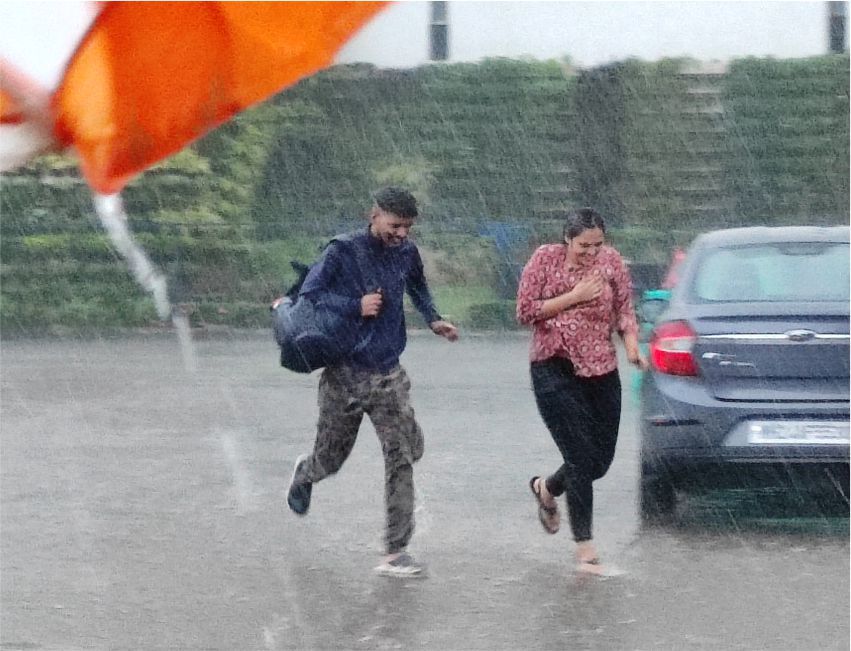Botany students and professors from Ruparel College revitalize IWSA's learning garden and living museum

- Indrani Basu
- 31 May, 2024
Through a joint effort by the Indian Women Scientists Association (IWSA) and D.G. Ruparel College in Mumbai, the "Learning Garden and Living Museum" located at the IWSA premises in Vashi recently received a significant facelift. Under the guidance of Assistant Professor Dr. Shyam Palkar, botany students from D.G. Ruparel College re-identified and labeled the trees in the garden. These labels include common names, local names, botanical names, uses, and QR codes. The students also maintained orchids and organized nature photography displays.
The students set up a garden museum kiosk with photos of Navi Mumbai’s flora and fauna and labelled the arboretum trees, showcasing their medicinal values and other uses. Concurrently, IWSA is collaborating with Project Vapan, a seed conservation initiative by the botany students of D.G. Ruparel College. Volunteers established a seed bank by collecting seeds from locals and created a kiosk featuring informative posters to circulate information.
This initiative aims to educate students and the public about the importance of plants, fostering appreciation amidst challenging climatic conditions. The arboretum, envisioned as a "Learning Garden, Living Museum," is the first of its kind, welcoming visitors and nature enthusiasts of all ages to expand their botanical knowledge. Through these efforts, IWSA promotes a deeper understanding of plant life and environmental stewardship.
The Learning Garden and Living Museum are managed by a dedicated team of women scientists, including Ms. Vijaya Chakravarty, Dr. Sweedle Shivkar, Ms. Vini Dandhu, Ms. Tripta Tewari, Ms. Priya Jacob, Dr. Yojana Singh, Dr. Srirupa, and Dr. Maitrayee Paul. The garden features a vast collection of medicinal plants ranging from ancient Siddha medicine to homeopathic remedies. These include plants like Baheda, Pippali, black pepper, ginger, neem, strychnos Nux vomica, Arjun (a heart medicinal plant), Thuja orientalis, amla, Bilva Patra, Brahmi, tulsi, aloe vera, pan phuti, and lemon grass.
The garden also serves as an educator's paradise, showcasing plants from various biogeographical regions of India, including the Western Ghats, Deccan Plateau, and Indian coasts, and ecosystems like deserts, rainforests, and wetlands. It features sensory plants for children and the differently-abled, such as bamboo groves for sound, and fragrant, colourful, and edible plants for all senses.
Dr. Shyam Palkar mentioned that the IWSA Vashi campus features an arboretum with a diverse array of trees donated from across India. However, nearby construction led to the translocation of these trees, resulting in the loss of their identification labels. To address this issue, Dr. Vijaya Chakravarty from IWSA sought support from Dr. Sweedle Cerejo-Shivkar and Dr. Shyam Palkar to reinstate and re-label these important plants.
Volunteers Pranali Chavan, Rucha Waikul, Vaibhav Singh, Anushka Masurkar, Aastha Somji, Ayush Virnodkar, and Sushmita Patole made several visits to the garden and volunteered with utmost sincerity to reorganize and classify these plants according to their properties.





